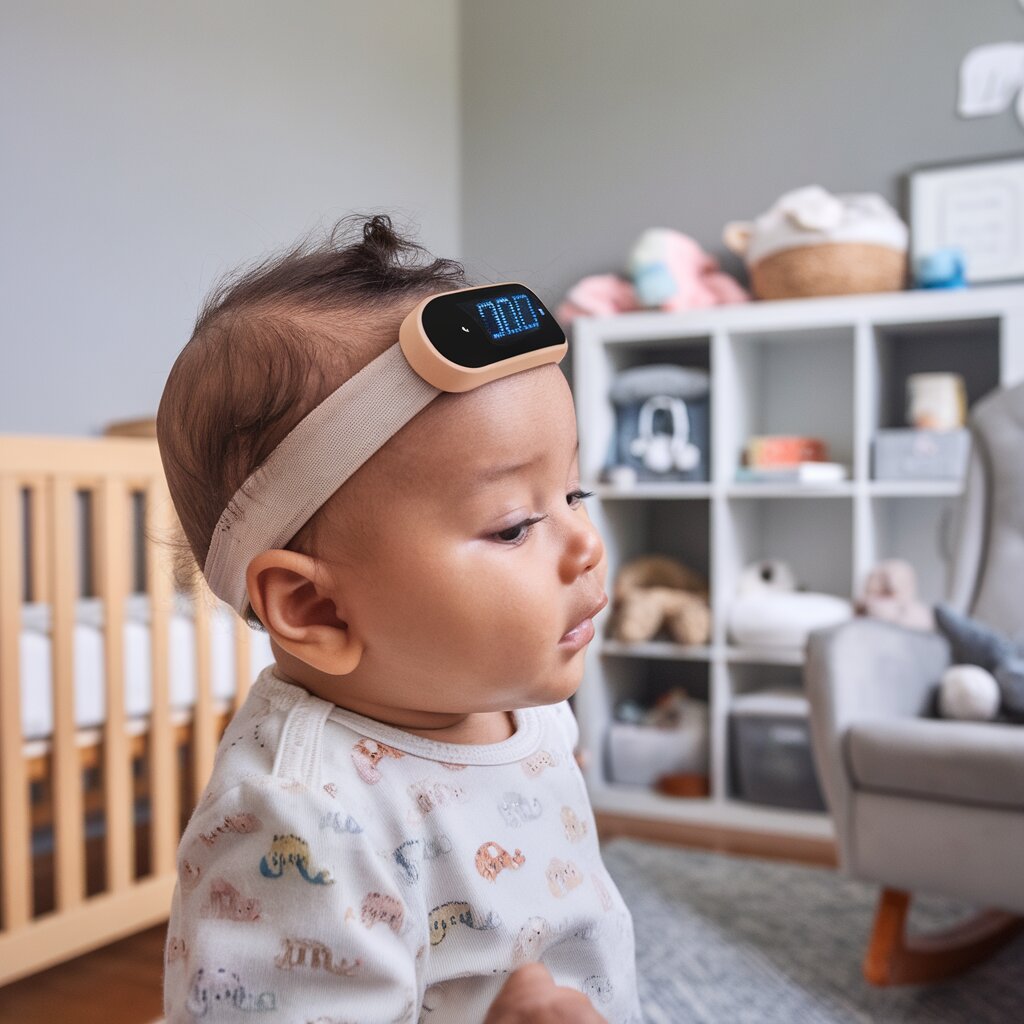When infants fuss or cry, tired parents often find themselves longing to understand what their baby is experiencing. Thanks to a groundbreaking innovation in wearable technology, scientists may soon be able to unlock the mysteries of infant brain activity. This cutting-edge wearable brain imaging device promises not only to track cognitive functions but also potentially to identify early signs of developmental conditions such as autism or ADHD.
In the ongoing quest to comprehend early childhood brain development, this device could be a game-changer. By offering real-time insights into how a baby’s brain operates, parents and researchers can better understand the myriad stimuli that affect their young ones’ moods and behaviors. The device works by closely monitoring neural activities, providing valuable data that could pave the way for early diagnosis and intervention for developmental disorders.
Martin Stew, the science correspondent for ITV News, highlights the potential implications of this technology. With the ability to capture and analyze brain function at such an early stage, scientists are optimistic about the possibilities of more individualized and timely treatment plans for conditions that are currently difficult to address in infancy.
This new wearable technology represents a significant leap forward in pediatric neuroscience, providing an unprecedented window into the developing minds of babies. As research progresses, the hope is that it will demystify the early cognitive landscape, offering guidance and reassurance to parents and healthcare providers alike.
By opening up new avenues for early detection, this innovative device may well mark the start of a new era in understanding and supporting infant brain development. With continued advancements, it stands to make a profound impact on how we care for the youngest members of our society.


